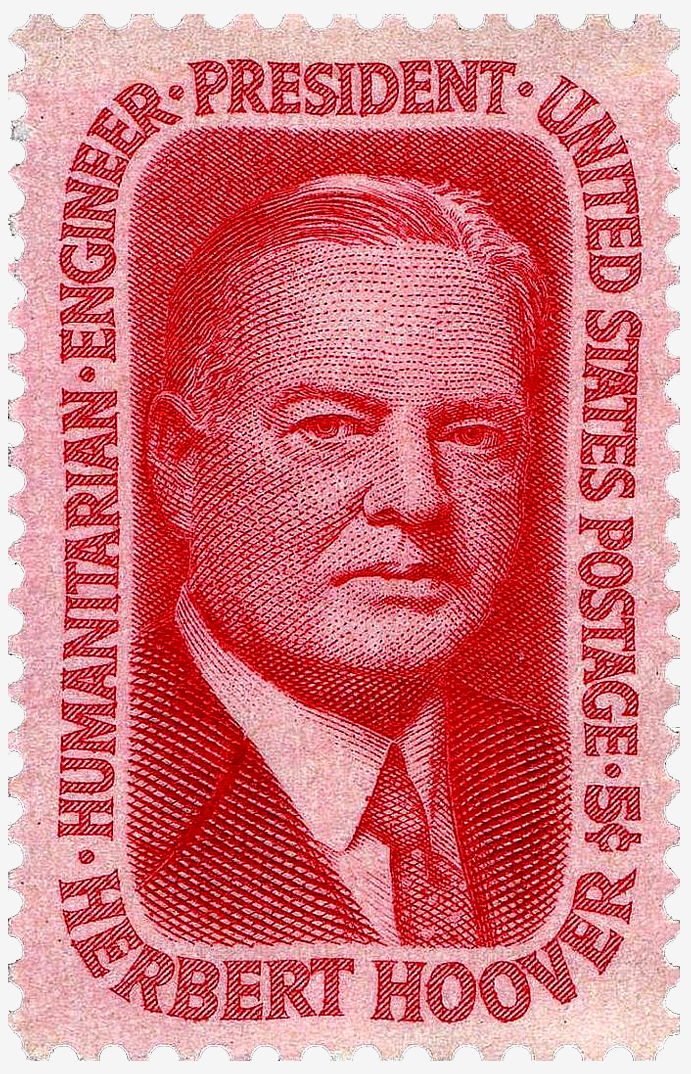My fellow Americans,
In 1928, as I campaigned for the presidency, I spoke about rugged individualism—the belief that our prosperity does not flow from government dictates or direction, but from the initiative and ingenuity of free people. It was, and remains, a compass for liberty.
This is an imagined letter from Herbert Hoover to America in 2025. It is constructed entirely from Hoover’s own words and ideas, drawn from his speeches, memoirs, and books. All quotations are verbatim; paraphrases are faithful to his views.
Nearly a century has passed, and I look upon my country today as it faces the perils I warned about in my day: presidents who govern by decree, a Federal Reserve under political pressure, a government piling debt upon the unborn, science questioned or bent to ideology, and tariffs raised in the name of protection. These are not mere policy disputes. They are the slow erosion of liberty by the steady expansion of government and the shrinking space for individual responsibility.
On executive power
During the Depression, I was pressed to seize extraordinary powers—to rule by decree, to command the economy from Washington. The temptation was immense. But I resisted.

I was scorned for that restraint. My successor, President Roosevelt, took up those powers with vigor “under the guise of emergency,” and “there was a steady drift of power to the Executive . . . to a degree never contemplated in our history.” The habit never left you.
I can tell you candidly today, just as I warned the country about Roosevelt’s New Deal: “Dictatorship develops not because men consciously seek it, but because the people and their representatives surrender to it bit by bit in the hope of relief from their difficulties.” We lose our rugged individualism, and with it our liberty and prosperity, through the “slow wearing away” of constraints on authority.
On the Federal Reserve
Permit me also a word on the Federal Reserve, that mysterious temple of credit, whose decisions ripple through every farm and factory. I did not oppose its existence. On the contrary, I believed it was created to be an independent stabilizer—a bulwark against both the frenzy of Wall Street and the grasp of Washington. Its purpose was simple: to supply liquidity in times of crisis and to restrain speculation in times of fever.
But the Fed failed twice in my time, and each failure was catastrophic.
First, in the late 1920s, I urged the Federal Reserve to curb the wild speculation that was turning Wall Street into a casino. They hesitated. That timidity fed the boom that became the crash.
Then came the Depression. Here was the moment for which the Federal Reserve had been designed—to expand credit, to protect banks, to prevent collapse. Yet, instead of boldness, we got contraction. Instead of courage, paralysis. The Fed permitted credit to dry up, banks to fail, and deflation to deepen. As I later wrote, it was “the most costly failure of leadership in our whole history.”
Although it was the Fed’s failure—as later demonstrated by Milton Friedman and Anna Schwartz, “I was to become the scapegoat for the Depression.” I was “permanently branded as the man who caused it.”
Nevertheless, I never doubted the need for its independence from both political authority and Wall Street. Otherwise, it cannot serve the people.
So, to those who now seek to bend the Fed to presidential whim, I would say that I know better than anyone that the Federal Reserve is an imperfect institution, but making it an obedient arm of the White House threatens your future. A central bank can steady a nation only if it stands apart from political command.
I must also briefly mention fiscal debt. In my time, I warned that deficit spending damages both our economy and our national character. Today, I see a republic saddled with a debt larger than its entire economy, financed with paper promises and assuming the world will continue to buy them. Leaders of both parties pass those IOUs to children and grandchildren. That is not rugged individualism; it is dangerous dependency.
On international trade
Finally, I am compelled by recent events to return to a confession I made repeatedly after leaving the White House. As secretary of commerce and later president, I believed deeply in the power of American productivity and free trade. As such, I fought hard against the Smoot-Hawley tariffs, noting that they were “vicious, extortionate, and obnoxious.”
But I relented to overwhelming pressure from Congress and signed the bill.
That law raised barriers against the world and invited others to do the same. Global trade shrank. American exports collapsed. Jobs vanished. We intended protection; we delivered hardship.
If I could whisper one lesson across time, it would be this: a great trading nation cannot wall itself off from the world. Trade is not charity; it is mutual gain. America thrives not when it shuts its gates and cowers behind protective tariffs, but when it competes confidently. My faith rests with the American people, with rugged individualism.
In closing
History has not been gentle with me. My presidency is remembered for hardship, for the Great Depression, for mistakes of policy. I cannot erase those chapters. But perhaps my experience offers you a clearer view. I can tell you, with the candor of one who has erred: beware the seductions of easy government answers. They too often leave citizens weaker and the republic poorer.
So I write, not to defend a record, but to defend a principle. That the American spirit, unshackled, is the surest source of prosperity. That tariffs cannot wall off the future, science cannot advance without freedom, presidents cannot govern a free people by decree, and a central bank can steady a nation only if it stands apart from political command.
America does not need to be remade by its government. It needs only to be released by it. That is rugged individualism. That is liberty.
Yours truly,
Herbert Hoover
Ross Levine is the Booth Derbas Family/Edward Lazear Senior Fellow at the Hoover Institution and co-director of Hoover’s Financial Regulation Working Group. He is a founding member of the Hoover Program on the Foundations for Economic Prosperity. Levine is also a research associate at the National Bureau of Economic Research.

